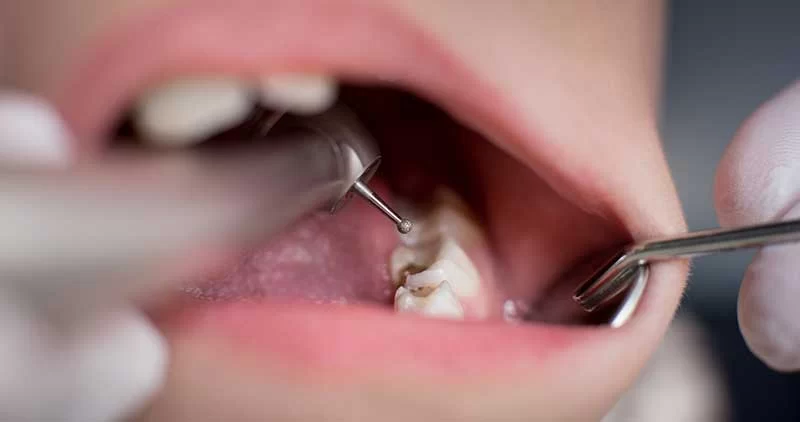
Best Oral Hygiene Habits for Preventing Dental Plaque
- What is Dental Plaque?
- Why Plaque is a Problem
- Best Oral Hygiene Habits to Prevent Plaque
- Oral Care Products for Plaque Prevention
- Real-Life Case Studies: Plaque Control Success
- Take Action Now for Healthier Teeth
1. What is Dental Plaque?
Dental plaque is a sticky, colorless film of bacteria that forms on your teeth. It develops when food particles and saliva combine, creating the perfect environment for bacteria to thrive. Plaque buildup can lead to a number of oral health issues, including cavities and gum disease. In order to maintain healthy teeth and gums, it's essential to keep plaque at bay with proper oral hygiene habits.
2. Why Plaque is a Problem
When plaque is not removed regularly, it hardens into tartar, which can only be removed by a dentist. Plaque and tartar contribute to gum inflammation, bleeding gums, and the onset of periodontal disease. Over time, the bacteria in plaque can lead to tooth decay and even tooth loss. Additionally, plaque can cause bad breath, making it uncomfortable for you and those around you.
3. Best Oral Hygiene Habits to Prevent Plaque
To prevent dental plaque from forming, follow these top oral hygiene habits:
- Brush your teeth twice a day: Use a fluoride toothpaste to brush your teeth for at least two minutes each time. Make sure to clean all surfaces, including your tongue and the backs of your teeth, to remove any plaque buildup.
- Floss daily: Flossing helps remove plaque and food particles stuck between your teeth where your toothbrush can’t reach. Flossing is crucial for plaque prevention and maintaining gum health.
- Use mouthwash: An antibacterial mouthwash can help kill bacteria that contribute to plaque formation. Look for mouthwashes that are specifically designed to reduce plaque and protect your gums.
- Clean your tongue: The tongue harbors bacteria that can contribute to plaque formation. Use a tongue scraper or your toothbrush to clean your tongue daily.
- Visit your dentist regularly: Regular professional cleanings by your dentist help remove tartar and plaque that you can’t get rid of on your own. Dentists also offer tips for improving your oral care routine.
4. Oral Care Products for Plaque Prevention
The right oral care products can make a big difference in preventing dental plaque. Consider incorporating the following into your daily routine:
- Electric Toothbrush: Studies have shown that electric toothbrushes are more effective at reducing plaque than manual brushing. Look for models with a built-in timer to ensure you brush for the full two minutes.
- Floss Picks or Water Flossers: If traditional flossing is difficult or uncomfortable, consider using floss picks or a water flosser. Both are great alternatives for removing plaque between your teeth.
- Anti-plaque Toothpaste: Choose a toothpaste with anti-plaque properties. These can help prevent plaque buildup and keep your teeth cleaner for longer.
5. Real-Life Case Studies: Plaque Control Success
Many people struggle with plaque, but with the right habits and products, they can achieve significant improvements. Take Sarah, for example. She struggled with plaque buildup and persistent gum inflammation for years. After incorporating an electric toothbrush, daily flossing, and antibacterial mouthwash into her routine, she saw a dramatic reduction in plaque and her gum health improved within just a few weeks.
Another case is James, who suffered from chronic bad breath due to plaque buildup. By using a water flosser and brushing more thoroughly, he was able to eliminate the plaque around his back teeth that were causing the problem. Now, James enjoys fresher breath and feels more confident in social situations.
6. Take Action Now for Healthier Teeth
Plaque prevention is essential for maintaining a healthy smile. By following the best oral hygiene habits and using the right products, you can significantly reduce your risk of plaque buildup, cavities, and gum disease. Don't wait until plaque causes problems – start implementing these tips into your routine today!
If you're looking for high-quality oral care products to help with plaque prevention, check out our selection of electric toothbrushes, anti-plaque toothpastes, and water flossers. Take control of your dental health and keep your teeth plaque-free with our recommended products. Click here to explore our range of plaque-fighting oral care products!







 Westgate Dental Arts3.0 (2 review)
Westgate Dental Arts3.0 (2 review) Coventry Family Dental4.0 (247 review)
Coventry Family Dental4.0 (247 review) Familia Dental3.0 (1028 review)
Familia Dental3.0 (1028 review) Dr. Daniel S. Fife, DDS4.0 (31 review)
Dr. Daniel S. Fife, DDS4.0 (31 review) Dentistry At Suburban Square: Michael I. Wollock, DMD4.0 (1228 review)
Dentistry At Suburban Square: Michael I. Wollock, DMD4.0 (1228 review) Comfort Care Dental4.0 (1156 review)
Comfort Care Dental4.0 (1156 review) The Importance of Oral Health Education During Pregnancy for a Healthy Pregnancy
The Importance of Oral Health Education During Pregnancy for a Healthy Pregnancy Why Skipping Dental Checkups Can Lead to Bigger Oral Health Problems
Why Skipping Dental Checkups Can Lead to Bigger Oral Health Problems Best Tips for Brushing Your Teeth Properly for Healthy Gums: Essential Techniques for Oral Health
Best Tips for Brushing Your Teeth Properly for Healthy Gums: Essential Techniques for Oral Health Advantages of Porcelain Dental Restorations
Advantages of Porcelain Dental Restorations How Can Diabetes Cause Tooth and Gum Problems? Preventing and Managing Oral Health Issues
How Can Diabetes Cause Tooth and Gum Problems? Preventing and Managing Oral Health Issues Healthy Habits for Promoting Good Oral Health and Hygiene: Tips for a Healthy Smile
Healthy Habits for Promoting Good Oral Health and Hygiene: Tips for a Healthy Smile